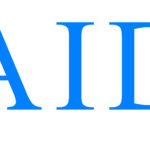Thu, 28 Sep 2017 07:27:41 +0000
By Bennie Mundando
THE industrialisation of Africa in the next decade must be owned and led by Africans with key support from the private sector, regional and multilateral organisations for the continent to fully maximise its potential.
Sahara Group executive director Tonye Cole said this during a session on Africa at the recently concluded 72nd United Nations General Assembly in New York where he represented the private sector on the panel.
Mr. Cole is co-founder of the leading African energy conglomerate.
Held under the theme “Third Industrial Development Decade for Africa (IDDA3, 2016-2025): From political commitments to actions on the ground,” the session sought to address among others, the environmental, social and economic challenges and opportunities that the continent faces in its quest for sustainable development.
Citing the need for a robust digital infrastructure, Mr. Cole urged African leaders to commit to having a digital highway that connects various nations.
“It will form the basis upon which everything else will thrive. It will unleash jobs for our teeming youths, deliver education to the uttermost corners of the continent, connect farmers and entrepreneurs to the world, deliver healthcare to remote locations and inspire electrification projects across borders,” Mr. Cole said.
He noted that a strategic digital revolution would also expose abuse and injustice, enhance law enforcement and justice, address inequality and transparency, and build strong institutions and foster partnerships towards actualising sustainable development.
“The digital revolution can help develop stronger institutions as well as civil society groups. It can enhance law enforcement and good governance and be a critical component in ensuring free and fair elections,” he said.
He pointed to Africa’s youthful population, immense agricultural potentialities and enhanced education systems as avenues that could be explored to foster the economic emancipation of Africa.
He said Sahara Group’s corporate responsibility interventions showed that people-empowerment was a critical component to achieving industrialisation adding that the continent was key in achieving the 2030 Sustainable Development Goals (SDGs).
“As we push for industrialisation, let us remember that the foundation for the most successful industry in any society is human capital. It is the educated mind, equipped heart, enhanced intellect and free soul that will come up with ideas that impact society, inventions that liberate humanity and solutions that better our world.
“Africa is core and central to achieving the 2030 SDGs and if those goals are to be achieved, it cannot be done without the successful implementation of IDDA3,” he said.
In 2016 the United Nations Industrial Development Organisation (UNIDO) proclaimed the decade 2016-2025 as IDDA3 following a United Nations General Assembly resolution – signalling the need for collaborative efforts geared towards ensuring the continent fits into plans aimed at realising the 17 SDGs by 2030.
Speakers on the panel included President Edgar Lungu, Prime Minister of Ethiopia Hailemariam Desalegn and Botswana’s vice president, Mokgweetsi Masisi, among others.






